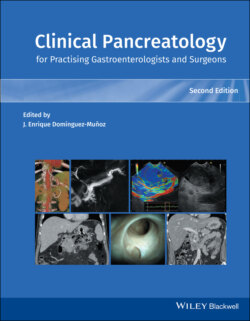Читать книгу Clinical Pancreatology for Practising Gastroenterologists and Surgeons - Группа авторов - Страница 23
Nutrition
ОглавлениеOne of our goals in treating patients with AP is early oral feeding. This should commence as soon as the patient is hungry and ideally when they are not vomiting and have improving nausea and abdominal pain. Oral feeding is a critical foundation of our therapeutic regimen. It maintains small bowel integrity thereby decreasing bacterial translocation. Early enteral nasogastric tube feeding does not reduce infection or death compared with oral feeding at 72 hours. In studies by Bakker et al. [72] and Cote [73], over two‐thirds of the patients tolerated an oral diet after its initiation at 72 hours after randomization, showing that starting an oral diet at 72 hours is not harmful to the patient. In patients with moderate or severe AP, early oral refeeding (defined as when patients are hungry and initiated when clinical and laboratory parameters resolve) is safe and may shorten hospitalization compared to conventional oral refeeding [74]. Vaughn et al. [75] in a systematic review of early (<48 hours) versus delayed (>48 hours) feeding in patients with AP found that adverse events secondary to early feeding did not increase. In these patients with mild to moderate AP, it may also reduce the length of hospital stay [75]. Their early nutrition group included oral as well as tube feeding.
Oral feeding intolerance, defined as relapse of symptoms following oral feeding, occurs in one of six patients with AP [76]. Predictors are complicated or severe disease reflected by presence of pleural effusion and/or (peri)pancreatic collections. If patients have oral feeding intolerance, enteral nutrition (EN) can be initiated with either nasogastric or nasojejunal feeding, as they have similar safety and efficacy. This should start early (<48 hours) in the course of severe AP, but should be delayed for 72 hours in patients with mild to moderate AP to determine if they can tolerate oral feeding. Infusion is with polymeric formula. Low rates of infusion possibly decrease bowel permeability but our goal should aim to meet patients’ caloric demands. EN should be started prior to 48 hours in patients with severe pancreatitis, especially those who are intubated. Khalid et al. [77] showed that the benefits of early feeding were more evident in the sickest (treated with multiple vasopressors) ICU patients.
Bakker et al. [78] reported a meta‐analysis of 165 individuals from eight randomized trials. The cohort was divided into those who received EN within 24 hours of admission and those who received EN after 24 hours of admission. Those receiving EN within 24 hours of admission had decreased organ failure (42% vs. 16%; odds ratio 0.42) and reduction in the complications of IPN and/or organ failure. There was no difference in mortality, and therefore the earlier the initiation of EN, the better for the patient with severe AP. However, the benefits of EN begun within three days could reduce the risk of secondary infection and improve the nutritional status of patients with AP [78].
Overall, EN should be utilized over parenteral nutrition in patients with AP. EN has a multitude of advantages over parenteral nutrition, including avoidance of catheter‐related sepsis, lower cost, maintenance of gut barrier function, and decreased bacterial translocation, a critical mechanism in developing infections in AP patients. EN, compared with parenteral nutrition, results in reduction in the risk of total and pancreatic infectious complications and risk of death [79,80].
